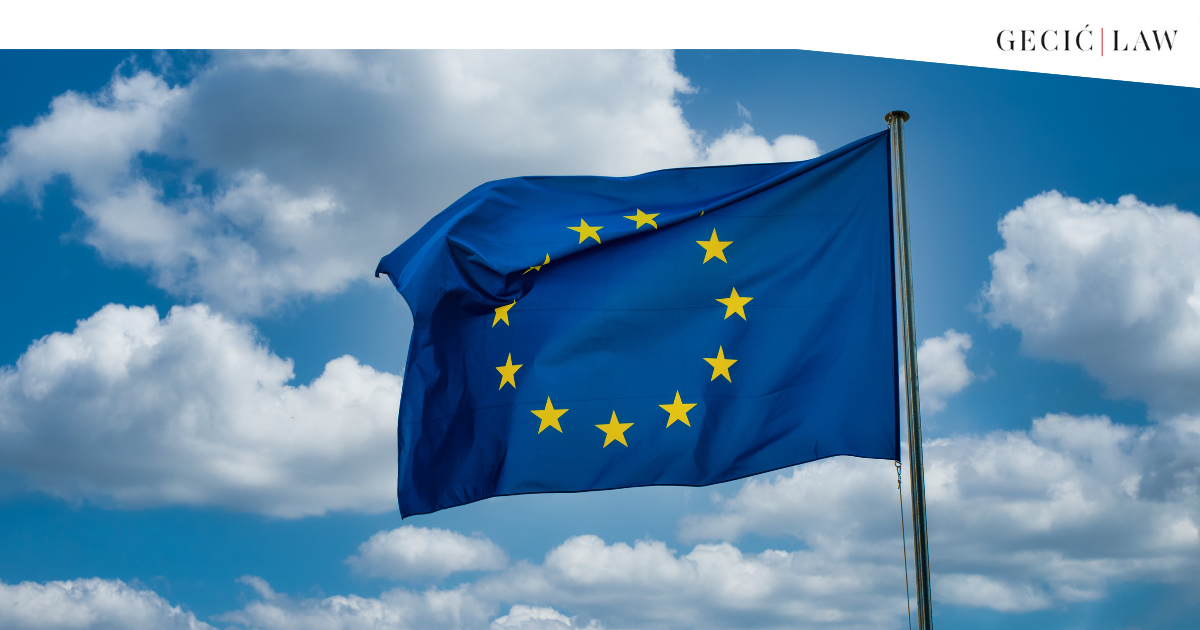

EU and Western Balkans leaders gathered in Albania last December for the EU and Western Balkans Summit to discuss cooperation and EU perspectives of the region. The Tirana Declaration (“Declaration”) was signed between the leaders of the Western Balkans Six and the EU Member States, with representatives of the EU Council and the EU Commission. The document comprises specific initiatives to strengthen regional cooperation in parallel with the EU accession processes.
One of the Declaration’s critical topics was the Western Balkans’ commitment to fully implement the Green Agenda and develop a carbon pricing policy in the context of the EU Carbon Border Adjustment Mechanism.
As we reported, in December 2022, the EU Commission, the EU Parliament, and the EU Council reached a provisional agreement on Carbon Border Adjustment Mechanism (“CBAM”) and finally aligned their positions regarding the principal issues of this revolutionary climate regulation. CBAM will apply as early as October this year, while the carbon pricing itself will begin in 2026. Numerous countries whose companies will be in the scope of this regulatory instrument are conducting calculations of its impact on the international trade of goods, especially on the export of those to the single market of the European Union (“EU“).
Considering the accession process with the EU, the Western Balkan (“WB”) countries signed several international agreements and declarations in which, among other things, they committed themselves to ambitious climate goals. One such step was the signing of the Sofia Declaration on the Green Agenda for the WB in November 2020, whereby the countries of the region recognized the EU Green Deal as a new EU growth strategy for a modern, climate-neutral and competitive economy. With this act, the contracting parties committed to a series of concrete actions, including introducing a carbon price, increasing the share and investment in renewable energy sources, and gradually abolishing subsidies for coal. The signatories promised to work with the EU on the goal of climate neutrality by 2050 and to harmonize their legislation with the stringent EU climate policy. Additionally, the Sofia Declaration stipulates that the countries of the WB should continue to promote decarbonization in the region by harmonizing with the EU Emissions Trading System and introducing other forms of carbon pricing. The recognition of the problem of climate change by the countries of the WB is undeniable, and the implementation of a mechanism such as CBAM will further encourage the green transition in these areas. Finally, governments must adopt national climate plans to reduce greenhouse gas emissions. Since the end of last year, the region’s jurisdictions undertook additional duties regarding certain environmental aspects by signing the Tirana Declaration.
Through the Tirana Declaration, the EU stated its readiness to support the WB countries’ commitments to the EU Green Deal. For the first time, it places particular emphasis on the application of CBAM in the region. The EU declared that it is prepared to assist the leaders of the WB in implementing the Green Agenda in the area, including their climate commitments under the Paris Agreement, as a critical driver for the transition to climate-neutral, climate-resilient, and resource-efficient economies. The EU highlighted the importance of the Green Agenda to unlock the potential of the circular economy, fight against pollution, improve waste management, and speed up the transition to green energy in the region. Additionally, the EU intended to provide technical and financial assistance to the partners in creating a carbon pricing strategy within the EU CBAM.
Bearing in mind that the EU is the leading trade partner of the WB countries, accounting for 67.6% of the region’s total trade, these countries are closely following the introduction of CBAM, the world’s first carbon border tariff.
WB exporters to the EU single market will have several options to become CBAM compliant. Purchasing CBAM certificates at the border while exporting CBAM-covered goods is the least preferable option. In this sense, countries outside the EU, including WB countries, will most likely have two additional possibilities to avoid the CBAM payment:
At the annual conference of the Initiative for Coal Regions in Transition in the WB and Ukraine, the Minister of Environment and Physical Planning of North Macedonia, Naser Nuredini, acknowledged that the Western Balkans need a joint carbon pricing system as this is the only way to avoid CBAM and to keep the funds that the EU would take through the cross-border CO2 tax and that North Macedonia is not prepared to roll out a levy on emissions on its own.
It remains to be seen whether the nations of the Western Balkans will collaborate and implement carbon pricing mechanisms effectively and whether they will be able to overcome any obstacles that may arise in the process. Yet, there is a sense of optimism that through concerted efforts and a firm resolve, they will be able to surmount these challenges and pave the way for a more sustainable future.
Authors: Branko Gabrić, Vasilije Bošković, Nikola Ivković